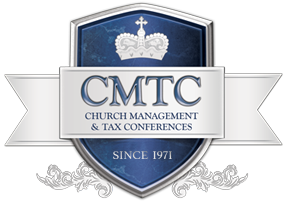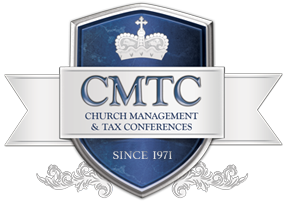Why Your Church or Ministry should be Incorporated
Recently I conducted a Church and Clergy Tax Conference in a neighboring state. During the question and answered period I learned that one of the Churches in attendance had never formally registered with their state, nor were they a legitimate 501 (c) (3). The Board Members in attendance stated that the old Church did not want to be incorporated for fear of government involvement in their Church affairs. I eased their fears and they became legal.
Unfortunately, there are few of these types of Churches still in existence at the moment across this nation, but what they feel is their protection (non-incorporation) may very well be their downfall.
There are many advantages associated with incorporation as there are many disadvantages connected to non-incorporation. Let’s look at the latter first.
Disadvantages of Non-Incorporation
- The state in which the members meet will not formally recognize the existence of this group of believers. This can have serious consequences.
- Individual members of non-incorporated Churches can be personal liable for the liabilities of the Church. This could be serious in cases of sexual molestation, personal injuries on the premises, breach of contract, and other matters that could result in civil or criminal charges.
- Non-Incorporated churches cannot enter into agreements or contracts. This greatly impedes any efforts to operate as an organized entity.
- If the Church is wronged it will have difficulty filing suit in court. If someone sues the Church it and the members will be defenseless. Most Christians and Churches do not like to become involved in civil litigation, but when situations warrant it, the Church will face difficulties pursuing such suit. In the case where a member is negligent and causes damage to other members, it may leave members without a legal remedy to address such injuries and damages. This alone makes a healthy argument for incorporation.
- If the Church is not incorporated it cannot own or transfer property in its own name.
Why Every Church Should Be Incorporated
It is my heartfelt belief that every Church in the USA should be incorporated, not only because it is the right thing to do, but because of the necessity to protect the membership. Here are some valid arguments as to why:
- When a Church is incorporated it places the world on notice that it exists as a bona fide entity recognized by the state with a “registered agent.” A registered agent is a person who acts on the Church’s behalf to receive legal documents.
- Under incorporation the Church can own and transfer property in its name. This also makes available the possibility of bank loans to the church directly without requiring personal guarantees of the membership or leaders.
- We live in a very “law-suit happy” society. If the Church is incorporated there is a shield of liability available that renders members not personally liable for the acts of other members.
- Incorporation provides the church the ability to legally enter into contracts or agreements.
- Although most Churches do not like to sue, when incorporated, the Church has standing to sue if someone wrongs the church, allowing the Church the right to go to court and seek damages.
- Incorporation allows the IRS to determine if the entity is in fact a Church. This is vital if those making donations want to take advantage of tax deductions for their donations. The IRS is specific on guidelines it uses to determine if an entity is a viable Church.
IRS Guidelines to Determine if an Entity Is a Church
The IRS is very proactive when organizations are operating as tax-exempt. It is no different when that organization is a Church.
The IRS cited specific criteria in a Private Letter Ruling (# 200830028), to determine if an organization could be classified as a church. The criteria are as follows:
- A distinct legal existence
- A recognized creed and form of worship
- A definite and distinct ecclesiastical government
- A formal code of doctrine and discipline
- A distinct religious history
- A membership not associated with any other church or denomination
- An organization of ordained ministers
- Ordained ministers selected after completing prescribed studies
- Literature of its own
- Established places of worship
- Regular congregations
- Regular religious services
- Sunday Schools for religious instruction of the young
- Schools for the preparation of its ministers
We Can Help
There is no reason for any Church to not be legally established. Scripture is adamant that we are to obey the laws of the land unless those laws violate Scripture. The Bible does not give us the option to purposely not follow state and national laws regarding incorporation. Let us help you get compliant.
Chitwood & Chitwood has been in the business of properly maintaining Church and Clergy books and records for more than 78 years. We are the nation’s ultimate Authority in this field. I would encourage every Pastor and Church Leader to attend a Church Management Tax Conference in the city nearest you. It is not what you know that can hurt you, but what you don’t know. You can’t do Church like you used to do it.
Visit us at www.cmtc.org or call 800-344-0076 to register today. You will be glad you did.
Remember, for Chitwood & Chitwood, it is “A Ministry – Not A Job!”

